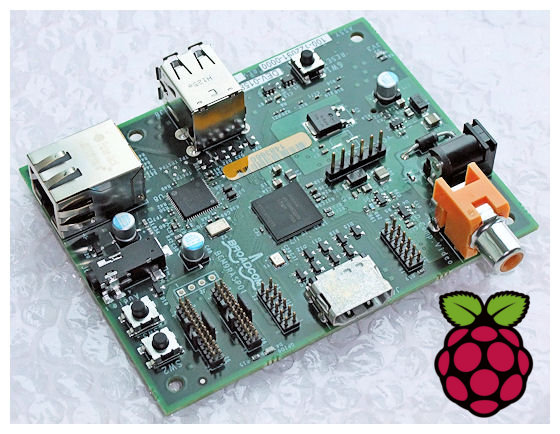Raspberry Pi, a £22 device created to help children learn programming, was sold at the rate of 700 per second, 42,000 units per minute, at one point last week. The massive demand for the Raspberry Pi exceeded everyone’s expectations, it was 20 times greater than the company could supply.
 Harriet Green, chief executive of Premier Farnell, said last week that the company will increase production of Raspberri Pi ‘as far as it can’ in order to meet demand instead of raising the price. The device itself is not expensive to make despite its ‘beautiful’ design. The cost will therefore remain £22 and the price will still be fixed by the charity that controls the production. The Raspberry Pi foundation has already sold its initial production run, around 10,000 units through two major distributors, Premier Farnell and RS. Their websites struggled to cope with the heavy traffic. The first version of the product, which sold out within minutes of going on sale, will first go to developers who can write supporting code and help develop the device. The initial design is a simple circuit board without the casing, however later models are expected to go on sale with packaging and may increase in price.
Harriet Green, chief executive of Premier Farnell, said last week that the company will increase production of Raspberri Pi ‘as far as it can’ in order to meet demand instead of raising the price. The device itself is not expensive to make despite its ‘beautiful’ design. The cost will therefore remain £22 and the price will still be fixed by the charity that controls the production. The Raspberry Pi foundation has already sold its initial production run, around 10,000 units through two major distributors, Premier Farnell and RS. Their websites struggled to cope with the heavy traffic. The first version of the product, which sold out within minutes of going on sale, will first go to developers who can write supporting code and help develop the device. The initial design is a simple circuit board without the casing, however later models are expected to go on sale with packaging and may increase in price.
Unfortunately the Raspberry Pi foundation has already suffered a manufacturing setback which might cause delays in delivery to end users. There has been a part mix-up as the wrong ethernet jacks were soldered on, without integrated magnetic parts that provide network connection and help filter noise. Before the product can ship they will have to be removed and replaced. Installation of the correct jacks is quite simple, however sourcing the right components may prove challenging. One of the foundation’s representatives said in a statement: ‘We’re having to start again and move through the negotiating/ordering/delivery cycle as fast as we can.’
 The simple device has also attracted interest from outside of the UK. A Middle East government, the country has not been revealed, contacted Raspberry Pi regarding its plans to issue one device to every schoolgirl in the country to increase their job prospects. The reason for such widespread interest, particularly from teachers and parents, may be a result of the concern over growing consumerism. Children that do not obtain basic technical knowledge at young age then lose interest and turn into consumers rather than creators and innovators. It is also important to include girls in the project as according to recent study most young women, between 13 and 18 years old, do not express any interest in computer technology or business study.
The simple device has also attracted interest from outside of the UK. A Middle East government, the country has not been revealed, contacted Raspberry Pi regarding its plans to issue one device to every schoolgirl in the country to increase their job prospects. The reason for such widespread interest, particularly from teachers and parents, may be a result of the concern over growing consumerism. Children that do not obtain basic technical knowledge at young age then lose interest and turn into consumers rather than creators and innovators. It is also important to include girls in the project as according to recent study most young women, between 13 and 18 years old, do not express any interest in computer technology or business study.
Online communities that formed around the Raspberry Pi and social media helped to keep the demand and curiosity high. The community that has already grown around the device is interested in developing and writing programs for it. So far the operating system for the product has been downloaded 30,000 times. As the project developed and matured, it exploded in popularity and attracted the interest of many Linux enthusiasts as well as some security researchers. Nadim Kobeissi, a developer of a secure communications program, hopes that the device can be used to bring secure communication to those whose free speech is threatened. Mr Kobeissi developed a secure communications program called Cryptocat which works inside a web browser and enables people to chat online via encrypted instant messaging. He plans to buy the small size computers to work as servers running Cryptocat. Because of their size and low-cost, Raspberry Pi are easy to ship to NGO’s and activists in places where free-speech is not accepted. Stephen Urbach of Telecomix supports the idea claiming that: ‘in the democratic and free countries where I do not trust my government because of data retention as in countries like Syria or the Bahrain where a wrong word can bring you to death, secure communication can save lives.’
Technological giants like Apple, Dell or Lenovo are also encouraged by Raspberry Pi developers to get involved in the development process to help with the innovation. If the powerful microprocessor that can currently be found in smartphones was applied to Raspberry Pi the idea could potentially grow extremely fast. Ms Green therefore welcomes interest and suggestions from other companies: ‘I would really encourage the major companies to have a look at the power of this idea.’


No comments:
Post a Comment